Suan Dusit University (SDU) upholds the principles of good governance, transparency, and stakeholder participation as the foundation of its institutional development. The University recognizes that inclusive engagement with local stakeholders—ranging from local residents and community organizations to government and private sectors—is vital to building strong, just, and accountable institutions, in alignment with SDG 16: Peace, Justice and Strong Institutions.
Policy Framework for Local Stakeholder Identification and Engagement (2024)
In 2024, SDU announced its institutional policy titled “Power of Community Engagement: Holistic Economy”, declared by Asst. Prof. Dr. Pitak Chanchareon, Acting President.
This policy established a university-wide framework for identifying and engaging with local stakeholders through participatory and inclusive governance.
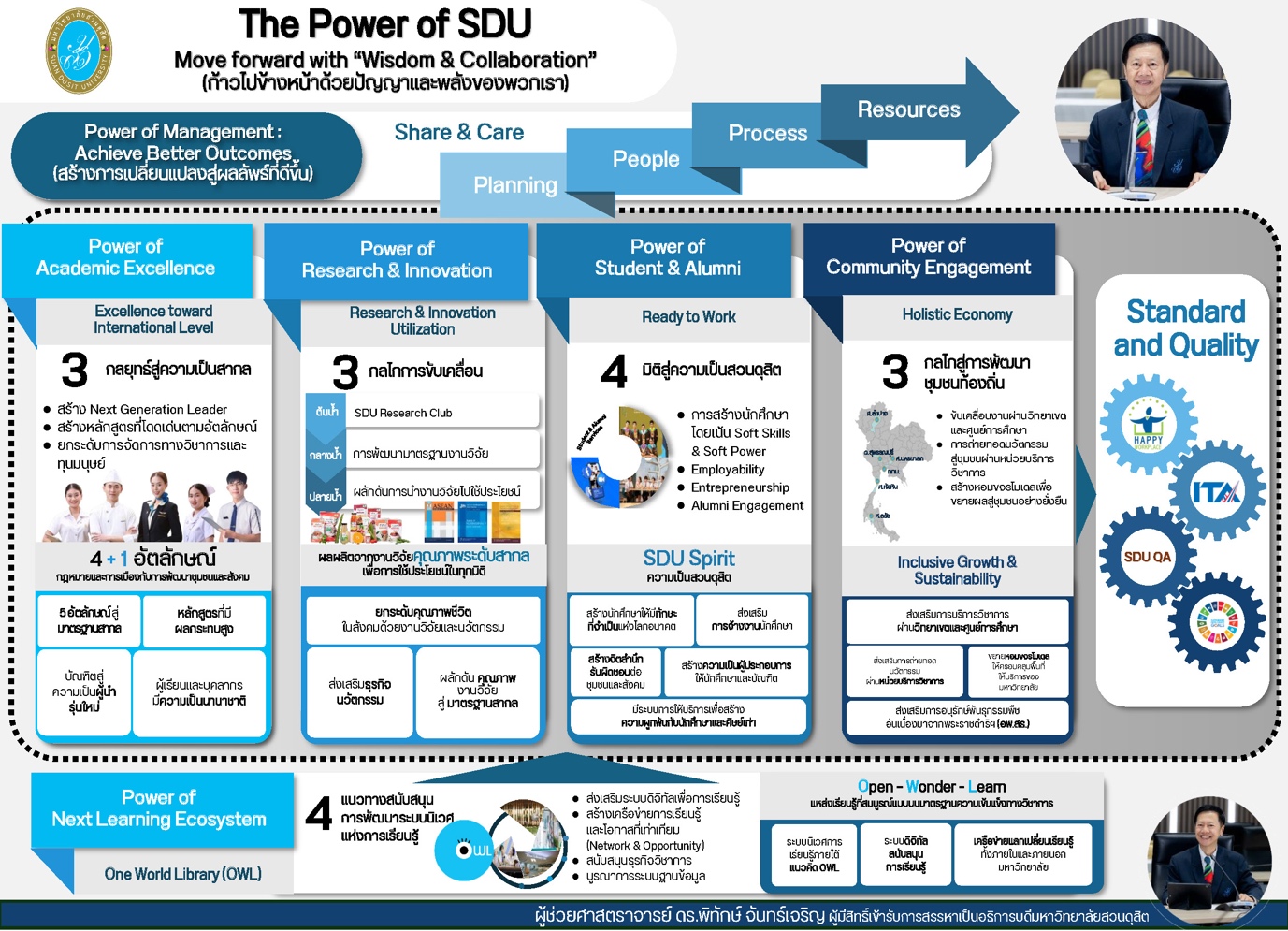
The policy defines SDU’s role as a knowledge-based catalyst for sustainable community and economic development, integrating academic, social, and economic missions under three key mechanisms:
- Campus-Based Community Engagement –
Each campus and education center (Suphan Buri, Lampang, Hua Hin, Trang) serves as a bridge between the University and its surrounding communities, promoting local collaboration through area-based projects and knowledge transfer initiatives. - Community Knowledge Transfer through Academic Service Units –
The University’s academic service units function as neutral platforms where external stakeholders—local governments, private enterprises, and civil society—can participate in identifying community needs, co-developing research, and implementing sustainable innovations. - The “Hom Kha Jorn Model” for Grassroots Development –
SDU’s flagship model integrates local wisdom with modern innovation to strengthen community enterprises, sustainable food systems, and creative local economies through partnerships with farmers, cooperatives, and SMEs.
Through these mechanisms, the 2024 policy institutionalized stakeholder engagement as a core governance principle, requiring all units to incorporate public participation in their decision-making and to report outcomes transparently.
Policy Review and Enhancement under SDU GOAL 2025–2028 (Policy Review 2025)
In 2025, SDU formally reviewed and enhanced the 2024 policy through the adoption of the SDU GOAL 2025–2028 (2568–2571) strategic plan, approved by the University Council on 31 January 2025.
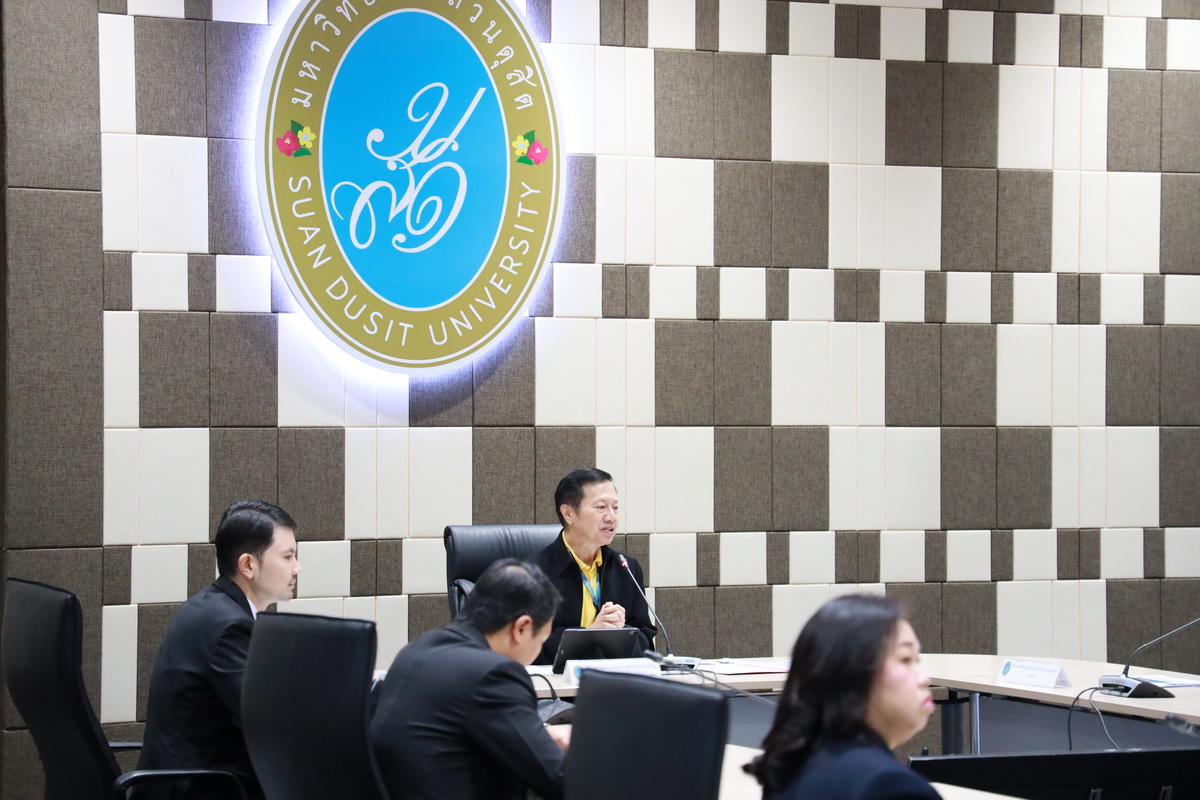
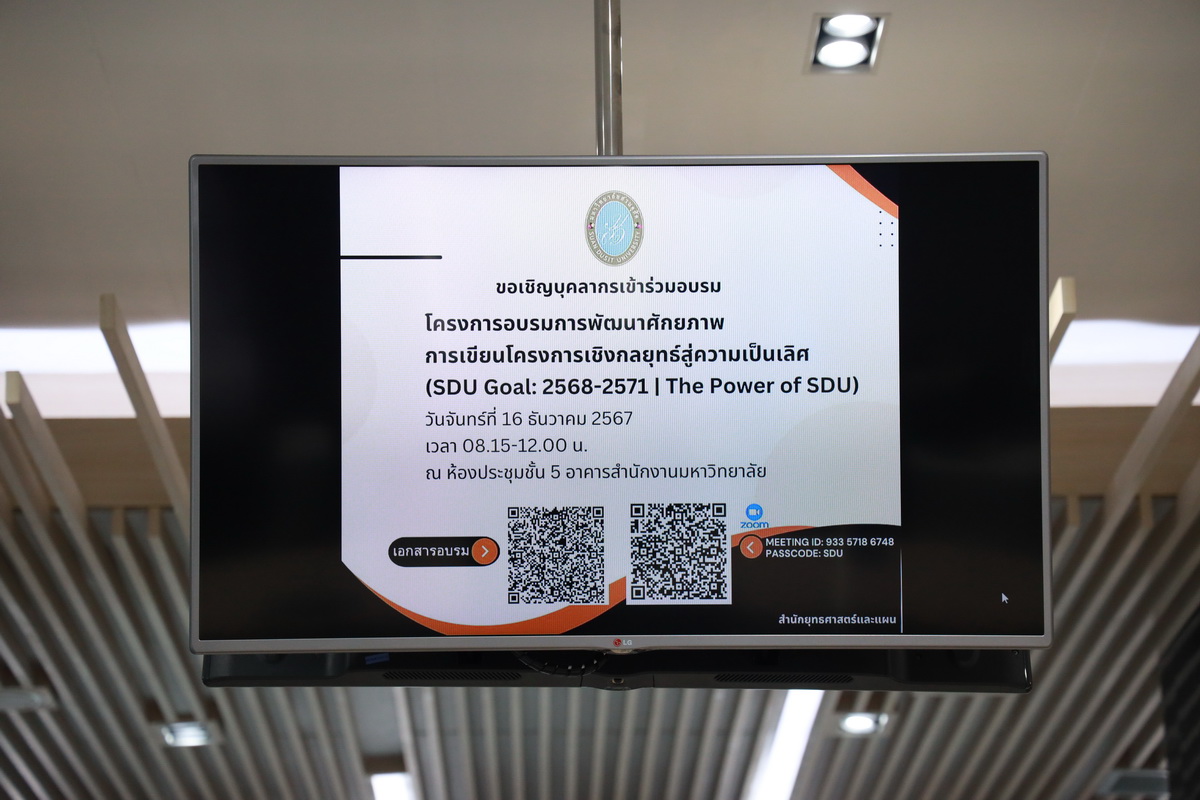
This strategic document elevated Power of Community Engagement into one of SDU’s institutional priorities, positioning the University as a “Holistic Engagement Hub” that fosters inclusive collaboration among academia, government, and communities.
The revised policy introduced key operational frameworks to systematize stakeholder engagement across all SDU campuses:
- Local Stakeholder Mapping:
Each campus and center must identify, categorize, and maintain an updated database of stakeholders—including local authorities, private sector partners, NGOs, and community leaders—to guide inclusive planning and collaboration. - Proactive Engagement and Collaboration:
The establishment of a Central Community Service Unit (CCSU) enables cross-sector cooperation, facilitating joint research, innovation transfer, and local development initiatives with measurable impact. - Integrated Area-Based Networks:
Flagship initiatives such as the Expansion of the Hom Kha Jorn Model and the Royal Plant Genetic Conservation Project exemplify SDU’s long-term partnerships with local governments, environmental agencies, and civil society organizations in promoting sustainable community resilience.
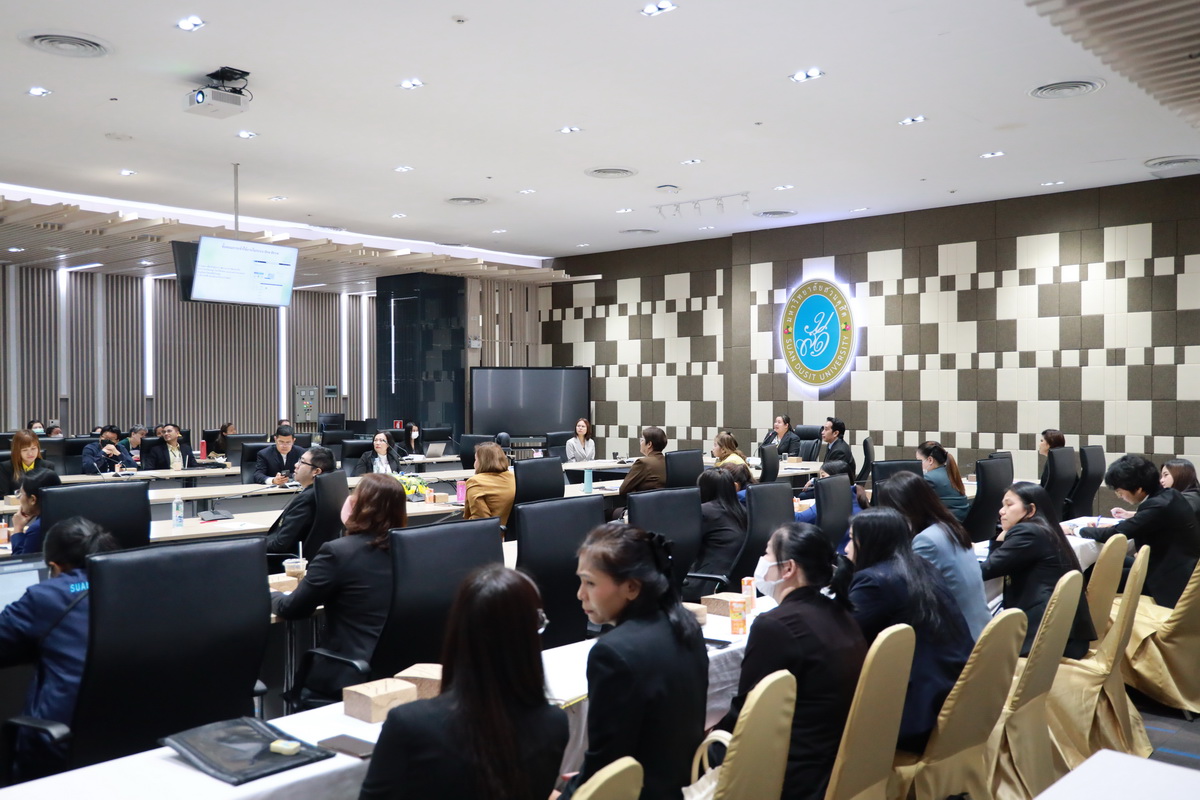
This review not only reaffirmed the University’s commitment to stakeholder inclusion but also strengthened SDU’s governance structure by transforming stakeholder engagement from project-level collaboration into a formalized, policy-driven institutional mechanism.
Participatory Mechanisms for Stakeholder Engagement in Decision-Making (SDG 16.2.4)
To ensure that stakeholder engagement is reflected in decision-making processes, SDU has established participatory mechanisms and public forums that bring together representatives from local government, civil society, and industry to contribute to university policies.
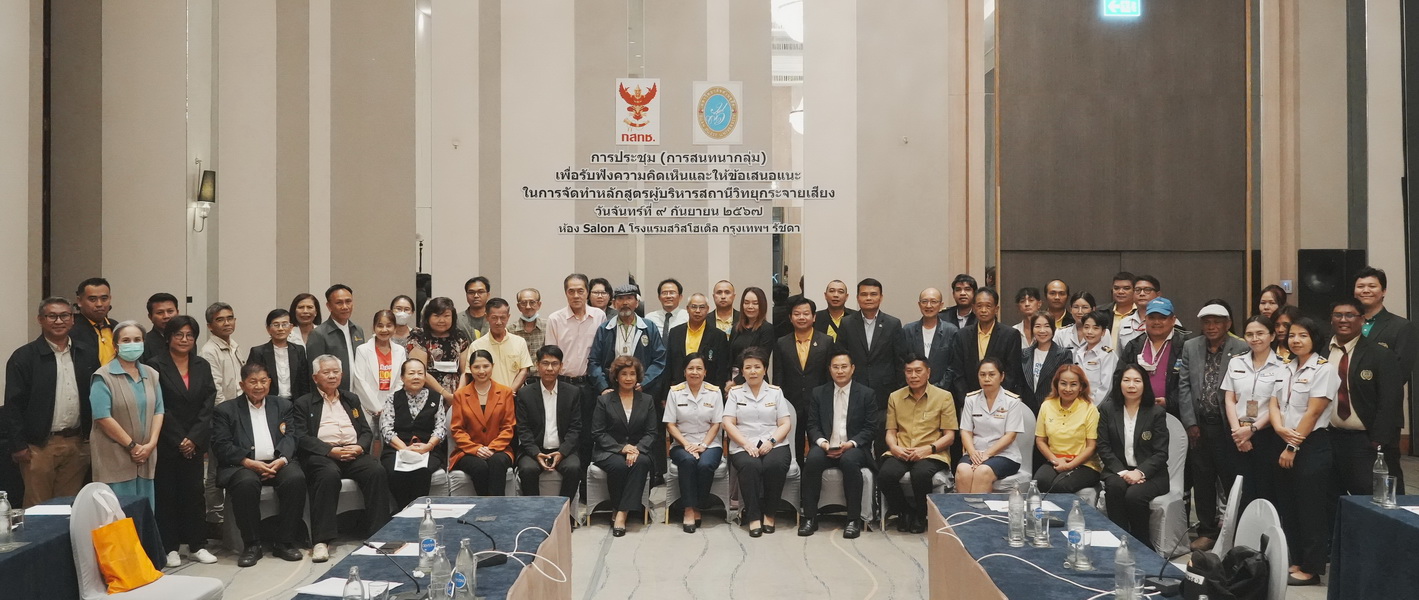
A notable example is the Collaborative Research and Consultation Project with the National Broadcasting and Telecommunications Commission (NBTC) in 2024, aimed at developing a curriculum for capacity building in the broadcasting and television sectors.
SDU, as the academic partner, organized a Focus Group Discussion on 9 September 2024 at Swissôtel Ratchada, Bangkok, where over 60 participants—including government officials, private radio network executives, community media representatives, and academic experts—shared recommendations and feedback for improving national training programs.
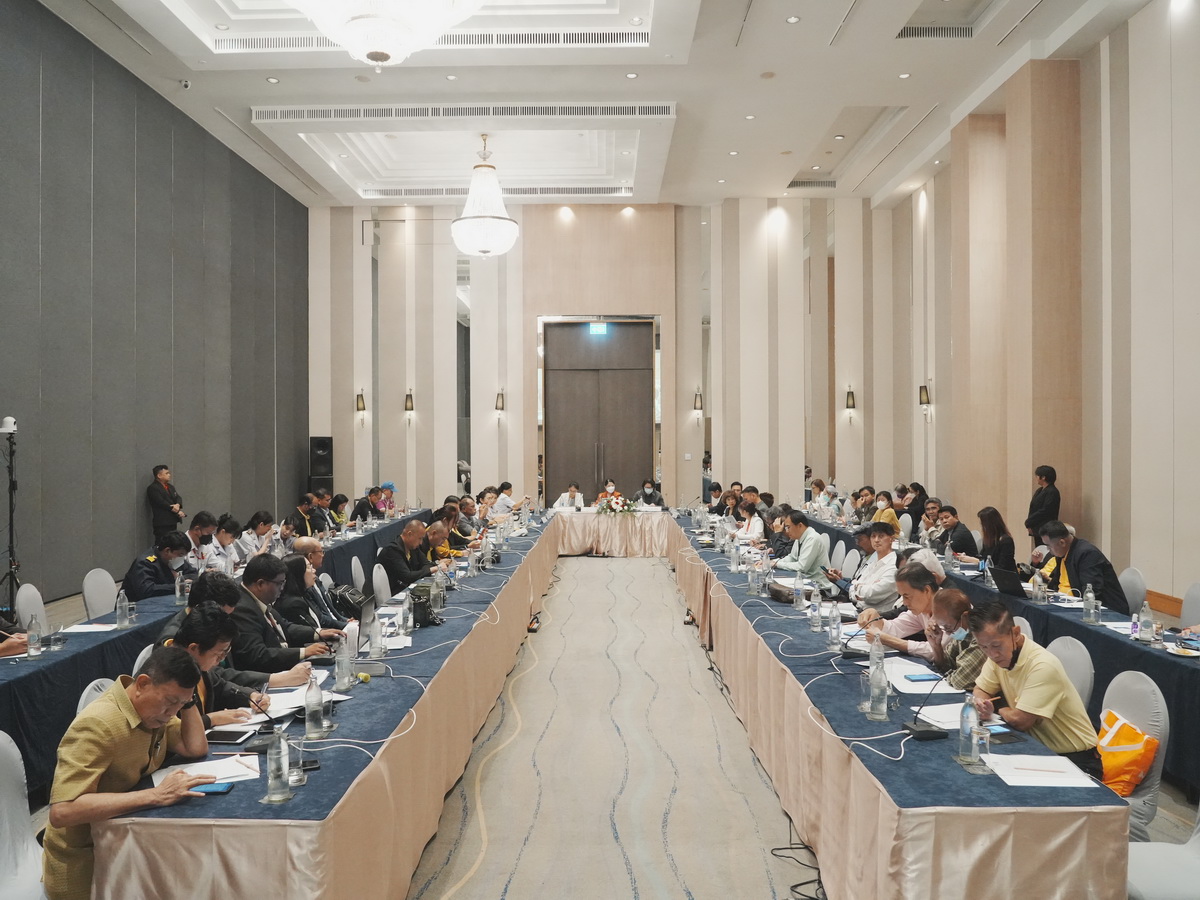
The University served as the Academic Secretariat, synthesizing the collected feedback into policy recommendations for NBTC.
This participatory process represents a model of meaningful stakeholder participation in decision-making and reflects the University’s role as a neutral and trusted platform where diverse stakeholders can deliberate and influence national policy development in a transparent and collaborative manner.
Transparency and Public Accessibility
Both the 2024 policy framework and the 2025 SDU GOAL document were made publicly available through the University’s official website (https://www.dusit.ac.th) and were officially endorsed by the University Council.
Similarly, the NBTC collaborative project and other stakeholder activities were published through public news releases and institutional reports, demonstrating SDU’s commitment to open governance and information transparency.
Conclusion
Suan Dusit University’s stakeholder engagement policy (2024) and its formal review (2025) fully align with the objectives of SDG 16.2.3 and SDG 16.2.4 under the THE Sustainability Impact Ratings 2026.
Together, they demonstrate that SDU:
- Has a written and operational policy for identifying and engaging local stakeholders;
- Provides evidence of participatory mechanisms that involve multiple sectors in decision-making;
- Ensures transparency and public disclosure of all stakeholder-related activities; and
- Conducted a policy review within the 2021–2025 assessment period to enhance inclusiveness and accountability.
Through these mechanisms, Suan Dusit University stands as a leading example of a University of Good Governance and Sustainable Engagement, where local stakeholders are not only identified and consulted but are genuinely involved in shaping institutional decisions and sustainable development outcomes—embodying the true spirit of SDG 16: Peace, Justice and Strong Institutions.
